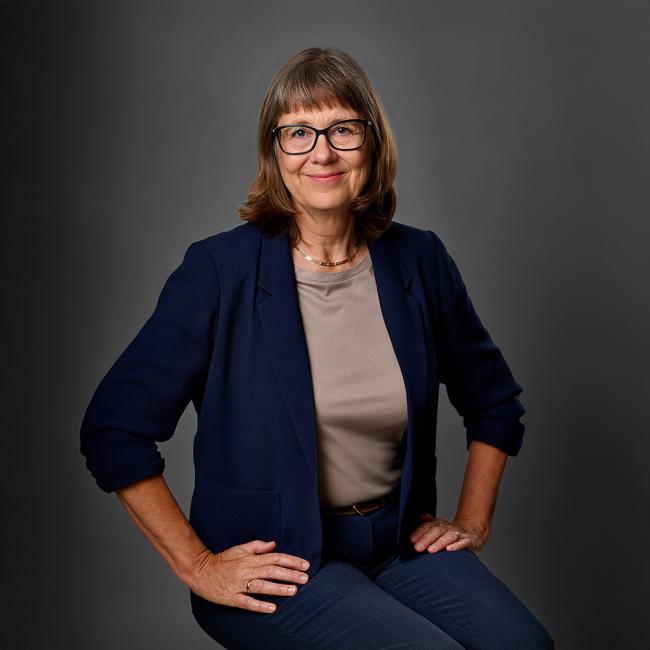Marie Nilsberth, Professor of Educational Work
Marie Nilsberth has a background as a primary school teacher and special educational needs coordinator, with degrees from the University of Gothenburg and what was then Karlstad University College. She completed her PhD at Karlstad University in 2014 with the doctoral thesis Classroom Trajectories of Teaching, Learning and Literacy. Teacher-Student Desk Interaction in the Middle Years. She has worked at Karlstad University as a teacher educator and researcher since 2002.

“My research is focused on interaction, literacy and learning in various educational contexts, with a particular interest in the impact of digitalisation in schools in relation to issues of equality and inclusion.”
In her research, Marie Nilsberth explores how digital tools such as mobile phones, learning platforms and social media become incorporated in teaching, learning and social relationships. Her research is often carried out in close collaboration with schools, teachers and pupils.
“I hope that my and my colleagues’ research from the perspectives of teachers and pupils has helped to bring about a more nuanced discussion about the digitalisation in schools, which has been a debate characterised by polarisation, strong emotions and a high degree of political influence. My research is aimed at both undergraduate education and continuing professional development for teachers, as well as decision-makers such as accountable school authorities, the Swedish National Agency for Education and other government agencies. Through my research, I also contribute to dialogue and discussion in various professional contexts and in the media.”
The research is interdisciplinary and touches on several other subjects, including special needs education, linguistics and sociology, as well as being grounded in long-standing collaboration with subject-specific educators in mathematics, history, civics and general literary studies. When it comes to issues of digitalisation, Marie Nilsberth particularly highlights the importance of Nordic research collaboration, which offers perspectives on how the same issue can be discussed in different ways, even though our education systems are similar in many respects.
“We are living in a time when we are frequently confronted with images of crises, uncertainty and polarisation around the world. Still, there are almost always images of people helping one another, collaborating and acting with goodwill, which shows trust. From my perspective as a researcher, I consider a school system founded on democratic values, where pupils from diverse backgrounds and experiences can meet and grow together, to be crucial for building trust from a societal point of view.”
When she is not working, Marie Nilsberth spends as much time as possible with her husband, children and grandchildren. She also enjoys gardening, hiking and choral singing.

